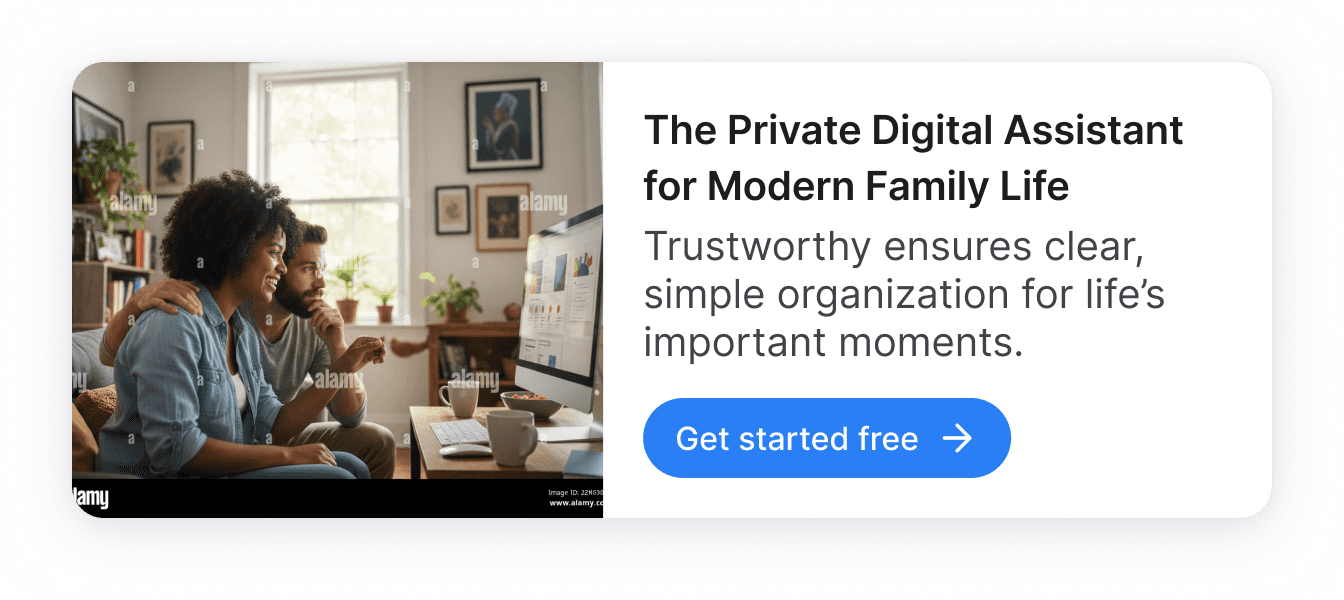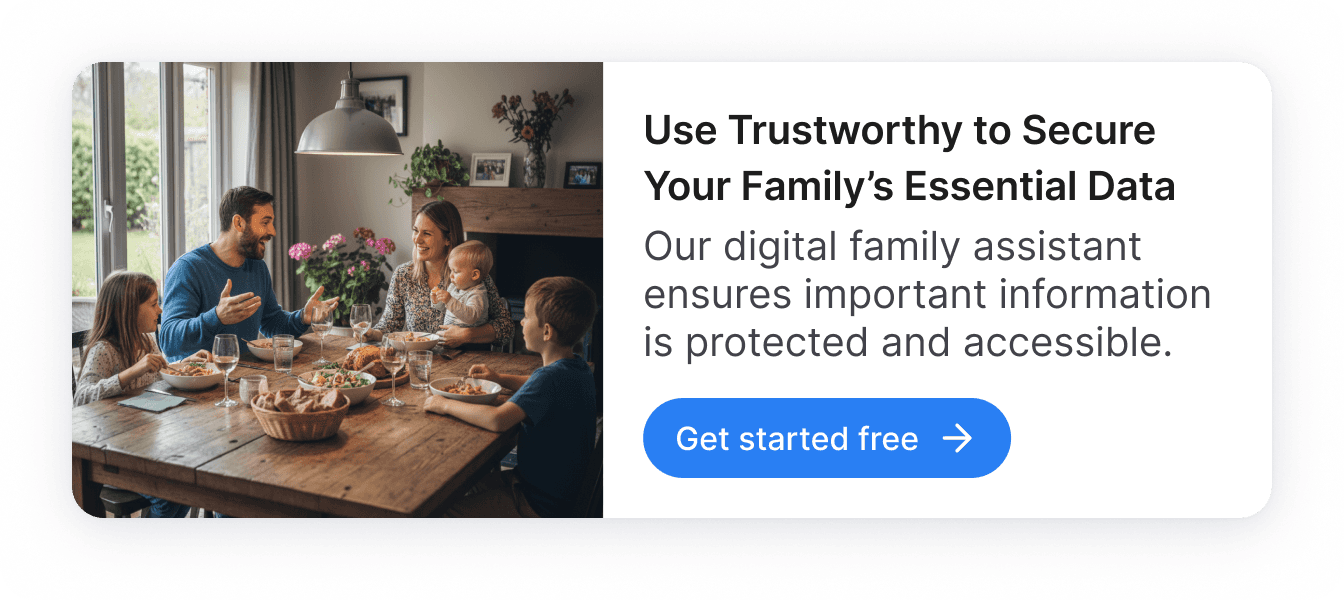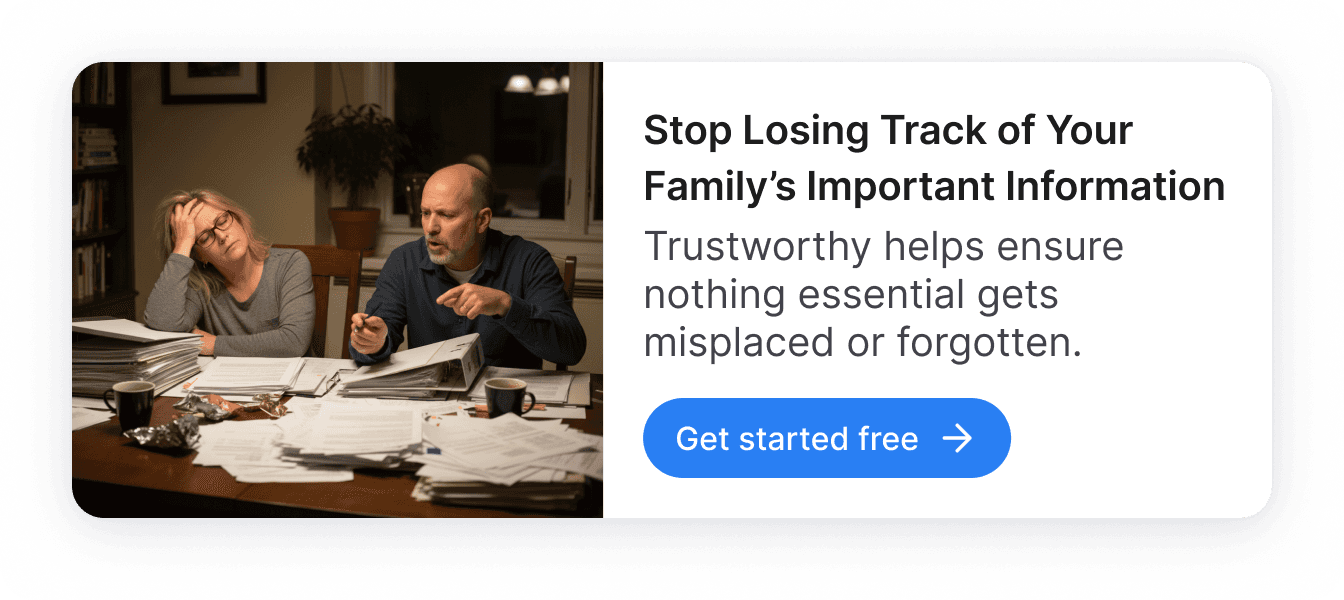Key Takeaways
Replacing a Social Security card requires a formal request.
Specific documentation is needed to verify identity.
Replacement limits may apply.
Delays can interfere with administrative tasks.
A lost Social Security card puts you at risk for identity theft, but replacing it and protecting your information doesn't have to be complicated.
Here’s what you need to know — from immediate actions to long-term safeguards — to keep your identity and finances secure.
Immediate Steps to Take
Q: What should I do first after realizing my Social Security card is missing?
A: Your first step should be to use an identity protection service. These services monitor credit applications, websites, chat rooms, and even black market sites for unusual activity. Many also provide credit monitoring, offering periodic credit scores to spot any suspicious changes quickly. Some services can even help cover certain out-of-pocket losses associated with identity theft.

Q: How can freezing my credit help?
A: A credit freeze restricts access to your credit report, preventing new accounts from being opened in your name without your permission.
“A credit freeze restricts access to your credit report and prevents new accounts from being opened in your name without your permission," says Daniel Rosen, the founder of Credit Repair Cloud. "… You can freeze your credit for free with Equifax, Experian, and TransUnion.”
Freezing your credit means lenders and bankers won’t see your credit scores, meaning they won't approve loans or accounts. You can keep the freeze in place as long as you feel your Social Security number (SSN) is at risk. Also, notify your bank so they’re aware of the situation.

Q: Should I file a police report?
A: Yes — if you suspect identity theft or feel at risk, file a police report to create an official record. You can also file a Federal Trade Commission (FTC) identity theft report. Keep copies of these reports in secure digital vault like Trustworthy.
Q: What is a fraud alert, and should I set one up?
A: A fraud alert tells lenders to take extra steps to verify your identity before approving new credit. It’s free and lasts up to one year, with an option for an extended alert that lasts seven years.
Contact one of the three major credit bureaus (Equifax, Experian, or TransUnion), and they’ll notify the others for you.
Q: Should I notify the IRS if I lose my Social Security card?
A: Yes. The IRS may send you a notice if they detect fraudulent use of your SSN, but you can be proactive by completing Form 14039, the agency's Identity Theft Affidavit.

Replacing Your Card
Q: How do I get a replacement Social Security card?
A: The fastest way is to apply online through your Social Security account. Other options include visiting your local Social Security office (appointments may be required), calling 800-772-1213, or mailing in your application.
Replacement cards are free, with typical processing times of seven to 10 business days for online requests and up to four weeks for mailed applications.
Q: Can someone else get a replacement card for me?
A: Yes, if they can provide proof of their authority and required identity documents for both themselves and you.
Deciding Whether You Really Need a Replacement
Q: Do I need a physical Social Security card?
A: Not always. If you know your number and believe it’s still confidential, you can often use other documents with your SSN — such as tax documents, pay stubs, or a Social Security benefit statement — in place of the physical card.
Q: How can I prove my Social Security number without the card?
A: Any official document that includes your SSN, like pay stubs or tax returns, can serve as proof.
Preventing Future Problems
Q: How can I safeguard my Social Security card going forward?
A: Keep your card stored securely and use it only when absolutely necessary.
Trustworthy is an ideal solution — it provides secure, private storage for your most sensitive documents. Trustworthy's digital vault uses advanced protections such as multi-factor authentication, biometric authentication, AES 256-bit encryption, tokenization, and on-screen redaction. It’s also SOC 2 Type II and SOC 3 certified.

Q: What online habits reduce the risk of identity theft?
A: Be cautious about sharing personal information online. Avoid oversharing with strangers and be wary of websites requesting sensitive data. Regularly monitor your credit and statements to spot suspicious activity early, and consider a credit monitoring service.
Q: How can I keep my online accounts more secure?
A: Use strong passwords with at least eight characters, mixing letters, symbols, and numbers. Avoid obvious choices like pet names or birthdays. Enable two-factor authentication (2FA) whenever possible.
Q: What scams should I watch for?
A: Common scams include calls from people claiming to be from the Social Security Administration and phishing emails seeking your personal details. The SSA will not call you to demand your SSN or threaten you.
Final Thoughts
Losing your Social Security card doesn’t have to lead to identity theft — but you should act quickly.
By taking immediate steps like freezing your credit, setting fraud alerts, and filing official reports, you can protect yourself from financial harm.
And by adopting long-term safeguards — from secure storage in Trustworthy to stronger online security habits — you can reduce your risk of future problems and ensure your personal information stays safe.
We’d love to hear from you! Feel free to email us with any questions, comments, or suggestions for future article topics.











